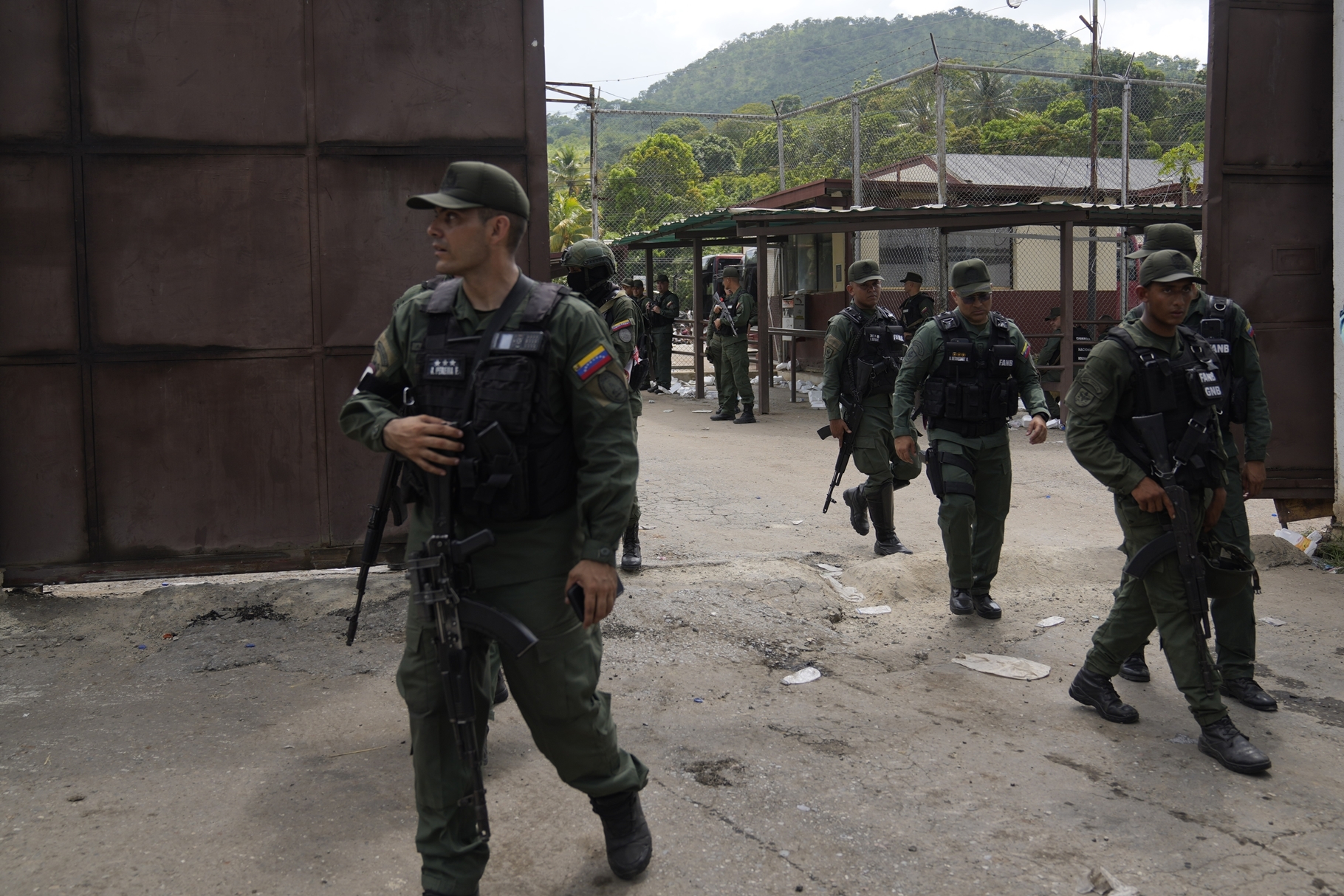Tocorón prison in Venezuela’s Aragua state has not only gained a reputation for its dangerous nature, but also for the extravagant luxuries inmates enjoyed while serving sentences for multiple crimes. Now, the country’s socialist regime wants to put opposition members protesting against the results of the presidential election, which have been denounced as fraudulent, there.
In addition to makeshift discos, swimming pools and recreational areas, detainees reportedly had access to gourmet meals, sports facilities and services such as hair salons and rest areas equipped with televisions and music systems.
These conditions showed a lack of authority and control on the part of the prison authorities.
The Child Warrior’s operations center
The case of Tocorón is also particularly notable for having been a center of operations for Niño Guerrero, leader of the bloodthirsty Venezuelan gang Tren de Aragua.
This criminal gang not only controlled the interior of the prison, but also extended its illegal activities beyond its walls, influencing organized crime in various parts of Venezuela and other countries in the region.

The ability of Niño Guerrero and his gang to direct their criminal operations from inside a prison reflected the weakness of the Venezuelan penitentiary system and the complicity that existed between some officials and powerful prisoners.
The criminal managed to escape from this center hours before a mega security operation was carried out in September of last year. The deployment ended with the transfer of the hundreds of prisoners who were in that place and who enjoyed the “benefits” of the Venezuelan penitentiary system.
Authorities said they found significant arsenals inside Tocorón, including firearms, explosives and grenades. These materials not only helped maintain internal control of the inmates, but were also used to perpetrate criminal activities outside the prison, such as extortion and kidnapping.

A zoo with more than 200 exotic animals kept by prisoners was another visible example of the power and influence held by inmates. Such luxurious facilities and illegal activities were denounced by organizations for years, but the Venezuelan government ignored them.
Tocorón will be a “maximum security prison”
Although Nicolás Maduro had assured in recent months that Tocorón would become a university for police officers, his speech changed amid the protests that took place throughout the country starting on July 29, one day after the presidential elections.
Hundreds of citizens protested against the results of Elvis Amoroso, president of the National Electoral Council, who said that the socialist leader was reelected with more than 50% of the votes. However, the authority never showed the evidence to support this supposed victory.
Following the protests, which have now been joined by residents of neighborhoods and popular sectors that once supported Hugo Chávez, Maduro decided to turn Tocorón into a “maximum security prison” to detain opponents who protest against what would be electoral fraud.
“I am preparing two prisons, which I must have ready in 15 days. They were already being prepared (Tocorón and Tocuyito), and all the guarimberos (opposition protesters) are heading there,” the president threatened during a statement broadcast by state media.
The current conditions of this prison complex are unknown.
Keep reading:
• Venezuelans protested in several countries in rejection of the results of the presidential elections
• How many opponents are detained in Venezuela for protesting against the election results?
• Cristina Kirchner demands that Venezuela publish the minutes: “For the sake of Chávez’s own legacy”
